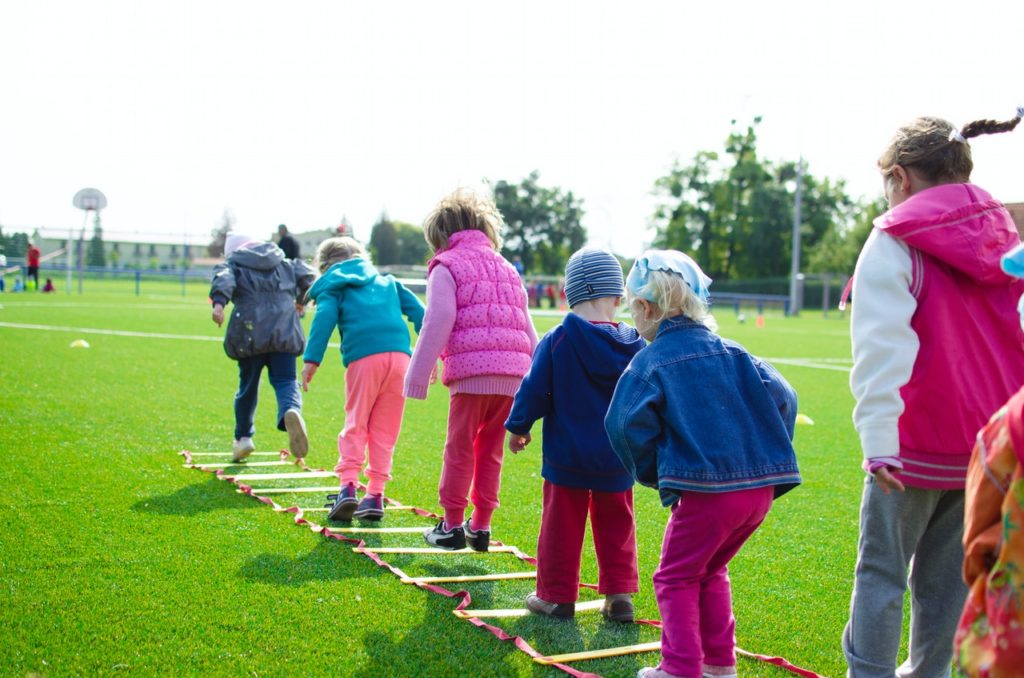Getting kids engaged in physical activities entails a lot of great benefits, and it’s not all physical. Sports, most especially, can help children build the right values and life skills that will serve them well as adults.
Let’s take a look at some of the long-term benefits of sports on children.
9 Reasons Children Need to Get Involved in Sports
Whether you play basketball or tennis on a sports court in the backyard or baseball and football in an open field, sports offer a lot of benefits for young children. Here are some of them:
Health Benefits
1. Strengthens bones and muscles
We’re all aware of the physical benefits of engaging in physical activities, especially sports. It strengthens one’s bones, joints, and muscles, especially for girls.
2. Improves body composition and structure
Another physical benefit that sports offer is it burns calories and reduces the amount of body fat in a person. It helps tone the different muscle groups and gives one a leaner physique. This leads to a decreased risk of obesity in children and even adults.
3. Builds a healthy heart
The cardiovascular activity that playing sports brings keeps the heart pumping which is good for the body. It lessens the risk of cardiovascular diseases. However, it is also important to take note that the road to a healthy heart also involves proper diet and supplementation.
Psychosocial Benefits

4. Establishes good connections and friendships
Almost all sports require interaction with other people. Team sports have the most dynamic interactions of all but individual sports such as tennis or bowling still allows one to interact with coaches and competitors. Training with others enhances a child’s psychosocial development and gives kids a sense of belonging and togetherness with others.
5. Instills discipline and respect for authority
Sports are fairly organized and orderly. Rules and regulations are implemented and expected to be observed. Certain authority figures are put in place to help maintain order in any sport. Each participant is expected to know the rules, follow them, and respect authority figures whether they be coaches, trainers, referees, or organizers.
6. Develops sportsmanship
One of the most valuable lessons that sports teach kids is accepting defeat with honor and integrity. Not all things in life will be easy and a lot of times, people lose. It may be in sports, in the classroom, or in the boardroom, you will not always win. Knowing how to gracefully accept defeat and move on to become a better athlete and individual is a life skill that everyone needs to learn and take to heart.
7. Builds dedication, persistence, and patience
Competition helps children develop the motivation to keep improving to avoid the taste of defeat on the court or field. It teaches them the value of determination and hard work, that not all things come easy. If you want to win, you need to work hard to achieve your goals and be patient about it. It teaches them to trust the process. This discipline and dedication will play vital roles in all aspects of their lives.
8. Develops a person’s self-esteem
Sports is a great way to build one’s confidence and self-esteem, even if you’re not really that good at it. Of course, the context here is that the main focus for playing sports should be for the love of it and not to prove to others that you’re the best. Otherwise, one’s self-esteem will be hinged on victories alone.
For this reason, parents and coaches should lay down the right foundation and values for children who want to be involved in sports, that the focus should be on the journey and not just the finish line.
9. Boosts one’s mood
Sports is exercise and exercise releases feel-good hormones called endorphins. These are the hormones that cause the natural high that one feels right after a good workout or a fun physical activity. If a child develops pure love for the sport, the happiness effect goes on to be a long-term thing, too, which will energize them more and give them a lasting feeling of satisfaction.
Kids need to be physically active to be healthier. But they need to be engaged in sports to build the right skills and discipline they will need in life as adults. The best way to get them to be interested in sports is to take part in sports yourself. Be the role model for your children to follow. You’ll find that both you and your child will not only benefit from it individually but you will form a closer bond with your kid as you do so. So lace up and hit the court now.

